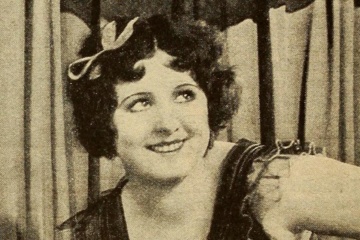Proof That It’s Pre-Code

Look, I just have to prove I’m not making this stuff up.
- The movie begins with a raucous wedding, and everyone busts out beers for toasting.
- Spousal abuse and marital strife played for fun and laughter. The couple who got married at the beginning of the movie, Sophie (Anita Page) and Alf (Norman Foster), go through a rough patch, and Sophie ends up demanding a divorce. You can also point to its age when you notice that Sophie gets socked for giving Alf too much lip, and, not only does he not get any repercussions, he ends up proving her wrong regardless…
- Another movie filled to the brim with women undressing. Do you hear me complaining? There is no complaining here.
- Besides revolving around divorce, the main character Margie (Marian Marsh) is on a quest to seduce wealthy men to make for herself an easier life. Young Margie declares: “Whenever I hand myself to a man for the rest of my life, it’s cash on delivery!”
- Line that couldn’t have been said in 1935: “Marriage is bunk– at least for poor people.”
- Some very Freudian imagery. I mean, come on, did you see the picture I put up top? How about this one, with Warren William jiggling a babe on a toy while she gasps in delight:

This is also pretty damn Freudian.
Aim High
“I’ve seen all I want of marriage.”

Love will bring us together. Eventually.
There’s a common theme in a lot of Pre-Code film I’ve been sitting through, from Havana Widows to Born to be Bad: women need to make a living too. Try as they might, though, the world of the 1930’s isn’t very amenable to the women: you work as a clerk, a landlady, or a model and that’s about as far as it gets you. What the glorious moneymaking schemes for the fairer sex got involved in weren’t quite the Horatio Alger stories that young boys were read.
Men made money. Women needed to get men.
That’s how a lot of these films saw the world, and most of them make the act of gold digging look remarkably just. The rich sophisticates of the day are shown as out of touch hedonistic fools, whose money definitely deserved to have parted from them.

Williams is all swagger, while Marsh is striving towards complexity.
This is how these films view the world, and they’re the route that Margie Evans (Marian Marsh) sees as the best way to live. As she watches her sister’s marriage disintegrate and the models in her department store gifted expensive diamonds and pearls, Margie realizes that love is bunk when compared against financial security.
This philosophy, unfortunately, puts her at odds with her grocery delivering boyfriend, Jimmie (Regis Toomey). He’s one of those guys who has a little saved up, but not enough for the ideas that are running through Margie’s head. He’s good, but has specific ideas about what a guy should and shouldn’t do with a dame.
Two things push them apart. The first is when Margie, who works as a seamstress in a department store, is forced to work as a model for a wealthy client during everyone’s lunch breaks. The client, Raymond Harding (Warren Williams), is a Broadway producer who keeps his eyes out for pretty faces. Margie’s stuck modeling a fur coat over top of her dainties, and Raymond’s grin never leaves his face.
Second, Margie’s sister, Sophie, moves back into the house with her useless husband Alf. Alf’s a champ at billiards, but also kind of a louse and a gambler. Sophie lays into Alf constantly for refusing to do anything other than try his luck in pool halls, which provides Margie with a rather vivid view of how what was once marital bliss can turn into a hellish nightmare. Once Alf even goes so far as to belt Sophie (he gets her in the face off-screen), Margie swears off marriage for love forever.
Jimmie accidentally overhears this, and is crushed. When Margie vows to further help her sister get a divorce, she’s stuck with the need to get her hands on $200 to pay off the local skeezy divorce lawyer. With Jimmie giving her the cold shoulder, she has to turn to Raymond. And that’s where the real trouble begins.
Go Low
“I suppose that’s the only way you lend money to girls like me.”
“Yes, that seems to be the customary arrangement.”

New York, 1931. What a wonderful town…?
Under 18 is set in New York, and unlike a lot of studio productions of the time, this one actually lets us get under its skin a bit. The film is set in the hot summer, and we get to see people camping out on the fire escapes in the days before air conditioning would provide any relief.
We also get to follow Jimmie and Margie on a few of their dates, which are as unglamorous as you’d expect. Besides him taking her out on deliveries with him, they also get to sit out on their stoop next to some fresh garbage while they talk about wealth and love. Margie’s over-the-top swooning for the gold diggers give Jimmie a good chance to philosophize:
“Going into everyone’s backdoors, you see there’s so much grief in the world. Everyone gets their fair share.”
The film becomes fairly egalitarian by the end; the rich people turn out to be not so bad, and the proud Jimmie even learns that he should listen to his own words a bit more often.
There’s One Way to the Top
“Men make saps out of girls like you and me!” […] “A girl’s got to use her brains to get things out of this life.”
Raymond ends up owning a penthouse suite, and Margie, looking for the money she needs for the divorce, is swept into his swanky James Bond-ian penthouse. Plied with alcohol and heavy handed seduction plays, will Margie give into her baser nature and do it for the money?
To step back fro a second, I actually got a real kick out of her journey up to the penthouse. Here’s that sequence, shot by shot. Notice the unusual angle for the building, making it look foreboding, and that nasty shadow on the elevator. For that party at the top, in action, it resembles the devilish moon people in From the Earth to the Moon as they gad about uninhibited:

Welcome to hell.
Under 18is a surprisingly well made and extremely funny film about one girl’s ideals in regards to the marital institution being shattered. The biggest problems with the film come after the climax, when so much is swept under the rug to make way for a happy ending that the carpets crunch when you step on them.
In spite of that, Marian Marsh shines and Warren William threatens to steal the show again. But I think what I liked most about the film was just how interested it was in the growing social strife. While Raymond may be rich and a philanderer, he can be kind when the moment calls for it. While Jimmie may be sweet and helpful, his pride can get the better of him and he can make things worse.
And then there’s Margie, in the middle of that. Morality or money? In the 1930’s, it came down to that. Some things don’t change.
Trivia & Links
- Karen over at Shadows and Satin was the one who initially turned me onto this movie with her enticing write up. She really dug the relationship between Alf and Sophie.
- The aptly named Warren-William.com talks about the movie in depth. They declare it as just for Marian Marsh fans. Are you a Marian Marsh fan? I recommend you watch this movie and find out.






7 Comments
Karen · May 13, 2012 at 5:06 am
Loved your post, Danny — as always. I had to laugh at your line about the stuff being swept under the rug at the end, as well as your comments about the Freudian images — I’d forgotten about that bit in the pool! Really enjoyed your insights about what the film had to say. (And thanks so much for the link to my post!)
Danny · May 13, 2012 at 4:59 pm
My pleasure! Thanks for turning me on to this movie, it was fantastic. 😀
michelle zimmerman · December 5, 2014 at 11:34 pm
It was a good movie, but humerous?
Some of the scenes and Marian Marsh remind me of Sylvia Sydney in “Street scene.”
Danny · December 9, 2014 at 10:56 am
I don’t think the movie is very subtle with its message, which I think makes it funny in spots. That and I have to admit that some of the Freudian symbolism is a hoot.
Fernando Garcia · December 9, 2014 at 10:28 pm
Where can I see this movie ?
Danny · December 9, 2014 at 10:46 pm
You can either buy it from Warner Archive or it appears on TCM occasionally.
Ebayer · April 4, 2019 at 1:25 pm
“Marriage is a wonderful institution,but who wants to live in an institution?”
….Groucho Marx
Comments are closed.